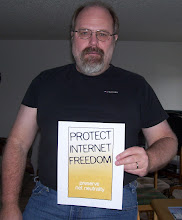 L.A.'s dispensaries remain open, for now. (Photo by digitalshay)
L.A.'s dispensaries remain open, for now. (Photo by digitalshay)Ignoring the advice of anti-pot City Attorney Carmen Trutanich, two Los Angeles City Council committees today rejected a proposed ban on sales of medical marijuana.
Anti-pot zealots within L.A. city government had coordinated an 18-month assault on the dispensaries, with headline-grabbing pronouncements from media hogs Trutanich and Los Angeles District Attorney Steve Cooley dominating coverage of the issue in recent weeks.
Both Trutanich and Cooley have been widely quoted in the press as claiming that most of the dispensaries are operating in violation of state law. Cooley's recent declaration that "approximately zero" of the dispensaries were operating legally sent chills and outrage through the medical marijuana community, seeming to echo San Diego District Attorney Bonnie Dumanis' statement that there are "no such things" as legal dispensaries.
The planned finalé, however, doesn't seem to be going according to script. This meeting was widely seen in the marijuana community as an attempt to deliver a coup de grace to the burgeoning dispensary scene in Los Angeles, but it didn't turn out that way.
Medical marijuana patients and providers turned out in large numbers for the meeting, a joint session of the city council's Public Safety and Planning and Land Use committees. Dozens of dispensary owners and pot users argued that the ban would simply put an end to safe access to marijuana for city patients. Don Duncan, California director for patient advocacy group Americans for Safe Access (ASA), said of the proposed ban, "It simply won't work."
Council members on both committees wrestled with the idea of ignoring the opinion of the city's top prosecutor. But after four hours of a contentious and heated hearing, council members had heard more than enough.
"When can we finally stop the merry-go-round?" asked Councilman Dennis Zine, who has been involved with the dispensary issue since 2005. Zine proposed an alternate provision allowing dispensaries to accept cash for marijuana as long as they comply with state law.
A complete sales ban would have taken Los Angeles into legally perilous and untested territory. Both ASA and a group called the Union of Medical Marijuana Patients threatened to sue the city if the council adopted the ban.
Chief Deputy City Attorney William Carter, sent by Trutanich to do the dirty work of arguing before a largely hostile audience that state law and state court decisions mean collectives cannot lawfully sell pot, found his remonstrations falling upon deaf ears despite his best attempts to whip up some anti-weed hysteria.
Councilman Zine, by way of contrast, sounded like the voice of reason, urging the council to adopt a less authoritarian interpretation of the law that would not conflict with how dispensaries operate in Los Angeles and in much of California.
A disappointed David Berger, special assistant to Trutanich, grudgingly allowed that it is up to the city council to decide whether to heed the advice of the city attorney's office. "Our duty is to advise them on what the law allows for and not to go on a whim. They decided to go a different way."
The unyielding position of Trutanich and his minions didn't go unnoticed, or unremarked upon, by Councilman Ed Reyes. "I think they are very, very narrow in that they're taking their prosecutorial perspective," an annoyed Reyes said.
"We need something on the books now. There is no reason we should delay, Reyes said. The full city council is expected take up the long-delayed dispensary regulations as soon as Wednesday.
"My primary concern is making sure we allow enough flexibility so that people who are sick have access, that we do not create an environment where the only function of the ordinance will be to eradicate them all," Reyes said a day before the meeting. "I don't think it's fair or humane to people who are really sick who need it."
Councilman Paul Koretz, former mayor of West Hollywood, said the regulations backed by by the City Attorney's Office are "unworkable.''
"I think we have one goal here, which is to provide access but at the same time eliminate the problems that medical marijuana dispensaries have been causing," Koretz said. And to do that, I would ask colleagues why we have to take the hardest-ass approach to the law that we could, rather than trying to take the approach that will make this as practical as possible.''
A crowd of about 400 people filled the main council chamber for the hearing, with the proceedings often becoming raucous. Most of the speakers were medical marijuana supporters, along with a sprinkling of community activists and conservatives who supported the ban.
Marijuana supporters argued that dispensaries should be regulated, not banned, with a reduction in the number of shops and a crackdown on operations that become a public nuisance.
The proposed ordinance would have "effectively shut down the city's medical marijuana distribution system by banning all sales of marijuana and sharply curtailing collectives' ability to grow and obtain medicine,'' according to the California chapter of the National Organization for the Reform of Marijuana Laws (NORML).
"Los Angeles would be foolish to pass this unworkable, ill-conceived ordinance," said California NORML coordinator Dale Gieringer before the meeting. "The city would be better advised to adopt of system of licensed regulation and taxes, which has proven successful elsewhere in the state."
NORML estimates that closing most or all dispensaries would cost Los Angeles between $36 million and $74 million in lost sales taxes, and the loss of jobs to 6,500 dispensary employees.
"Neither the Los Angeles City Attorney nor the City Council has the right to ban activity that is protected under state law," said ASA Chief Counsel Joe Elford. "Medical marijuana sales have been deemed legal by the state legislature, the courts, and the California Attorney General."
The number of dispensaries ballooned from only four in 2005, when the city council first began to take notice, to more than a thousand, the city attorney's office estimates. In 2007, when Los Angeles adopted a dispensary moratorium, 186 pot shops were in business. Hundreds more soon slipped through a boilerplate hardship exemption, and the rush was on.
A recent poll showed that more than three-quarters of Los Angeles County residents favored regulation, rather than elimination, of the dispensaries.
Californians legalized medical marijuana with Proposition 215 in 1996. The law was expanded with SB 420 in 2003, allowing collectives to grow the herb.
According to guidelines issued by Attorney General Jerry Brown (PDF), medical marijuana providers are supposed to operate as non-profits.
Chronic City: L.A. Panels Reject Ban On Medical Marijuana Sales

























No comments:
Post a Comment